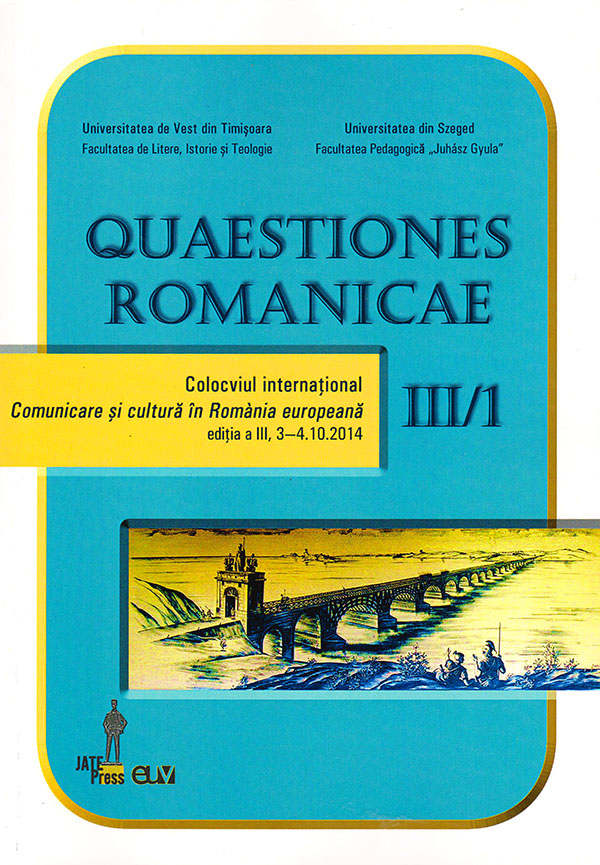Un expériment roman unique: le Félibrige
Abstract: (A unique roman experiment: the Félibrige) The Félibrige, cultural association founded in 1854 by the young French writers, from the Southe of France (Midi de la France), has a cultural vision that is rooted in a heritage that comes from the beginning of the XIXth century, with the rediscovery of the glories of medieval French literature: the poetry of the troubadours as a model for the European lyric during the twelfth and fourteenth centuries. Enhancing memory of that time when the Midi was independent, when his language was not only a dialect, but the idiom inspired the first French, Iberian and Italian writers, justifies the félibres‟strategy at the outset: langue d‟oc as the standard. The félibres have the intuition of linguistic and cultural exploitation of the sociolect - linked to the popular classes - as a gold mine. It is in fact a broader literary phenomenon which was the old cultural Romània or the "Latin race", a poetic concept open to francopolyphonical continuations. The félibres‟ credos are the consideration and the development of the cultural relations between the European peoples, of the common, cultural and linguistic heritage from the Latins, making the exercise of a warm and friendly geography of Europe. The félibres and the Félibrige practiced the francophony avant la lettre. It would be an affirmation of cultural identity and vocation assumed by the Félibrige. For the Romanian literature, one form of this identity dialogue was the moment "Vasile Alecsandri" when France invited the young Romanian literature in the family literatures of the Latin race.
Keywords : French dialectal, Felibrige, Felibrige‟s member, French renaissance, Ginta latina.
Résumé: Le Félibrige, association culturelle fondée en 1854, par une poignée de jeunes écrivains français, originaires du Midi, a une vision culturelle qui s‟enracine dans un héritage qui vient des débuts du siècle, avec la redécouverte des gloires du Midi médiéval : la poésie des troubadours, modèle pour la lyrique européenne des XIIe et XIVe siècles. Le souvenir valorisant de ce temps où le Midi était indépendant, où sa langue n‟était pas un patois, mais l‟idiome inspirateur des premiers écrivains français, ibériques ou italiens, justifie la stratégie des félibres dès le départ : « La langue d‟oc pour étendard ». Les félibres ont l‟intuition de l‟exploitation linguistique et culturelle du sociolecte - lié aux classes populaires - en tant que mine d‟or. Il s‟agit en fait d‟un phénomène littéraire plus large qui visait la Romània culturelle d‟autrefois ou la « race latine », création poétique aux irradiations francopolyphoniques. Le credo des félibres est la prise en compte des relations entre les peuples et l‟exploit du patrimoine linguistique et culturel commun européen et roman, faisant l‟exercice d‟une géographie cordiale et conviviale de l‟Europe. Les félibres et le Félibrige ont pratiqué la francophonie d‟avant-garde. Ce serait l‟affirmation d‟une identité culturelle et d‟une vocation assignée au Félibrige. L‟une des formes de ce dialogue identitaire a été, pour la littérature roumaine, le moment « Vasile Alecsandri » quand la France a invité la jeune littérature roumaine dans la famille des littératures de race latine.
Mots-clé : langue d‟oc, Félibrige, félibres, renaissance provençale, Ginta latina.
